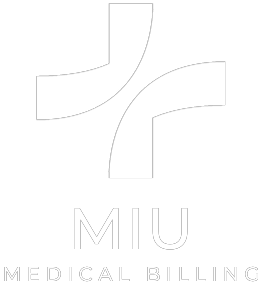What Is Place of Service 31 (POS 31) in Medical Billing?
Every code holds its importance in the high-stakes world of medical billing. A small error in any code can cost more than just dollars. People see the scenes of every doctor’s visit and all healthcare services, such as surgical procedures or a rehab session, but what is hidden is a complex web of documentation and a tirelessly working medical billing team that makes sure that a single digit in a
Place of Service (POS) code is absolutely accurate.

A single digit in a POS code can determine the possibility of claim payment, denial, or even an audit; hence, mistakes aren’t just paperwork; they are liabilities. Understanding POS codes is a necessity for reimbursement and accurate claim submission. One such code critical to know about is Place of Service 31. Read further to understand what exactly it means and when it is used.
Understanding POS 31: Skilled Nursing Facility (SNF)
Place of service code 31 is specifically dedicated for all the services rendered in a skilled nursing facility (SNF) certified by Medicare. A skilled nursing facility is a healthcare setup staffed with licensed nurses and healthcare providers who provide intensive, long- or short-term medical care.
This can benefit patients in such a way that if a patient is discharged from the hospital but still needs care and is not ready to go home, they can be transferred to a skilled nursing facility for the required professional care for complete recovery.
What Makes a Skilled Nursing Facility (SNF) Different?
A skilled nursing facility looks very similar to a conventional nursing home, but there’s a difference between the two in terms of purpose in the continuum of care. The difference lies in the level of healthcare provided, the type of services offered, and the qualifications of the staff members. Here’s what sets a skilled nursing facility apart from other healthcare settings:
Around-the-clock licensed nursing care
When patients are shifted to an SNF, they are under the observation of licensed nurses 24/7. The healthcare services provided are access to clinical expertise at all times, medication administration, monitoring vital signs, and providing immediate attention to any acute health issues. Contrary to an SNP, a traditional nursing home may not have all these facilities.
Comprehensive Therapy Services
A skilled nursing facility is designed to deliver a wide range of rehabilitative therapies such as physical, occupational, or even speech and language therapy. These therapies are usually prescribed and monitored by the patient’s physician and delivered under a properly structured plan according to every individual’s requirement.
Post-Acute and Post-Surgical Care
Post-surgical care is crucial for complete recovery after a major surgery, such as a hip replacement, or after a health crisis, such as a heart attack or a stroke. Healthcare facilities like SNFs have a goal to help the patients recover fully and regain independence so they can return home, back to their daily routine.
Advanced Medical Interventions
A licensed skilled nursing facility is well-equipped and staffed with professionals who can provide advanced medical care services such as
- Catheter and ostomy care
- IV (intravenous) therapy
- Pain Management
- Wound care for surgical or pressure ulcers
- Respiratory therapy and oxygen support
These services require specialized training and ongoing assessment; hence, these are often not available in a traditional nursing home.
Medicare Certification and CMS Oversight

It is important for a healthcare facility to meet the standards set by the Centers for Medicare and Medicaid Services (CMS) to qualify as a skilled nursing facility. The prerequisites to be fulfilled by an SNF should be
- High-quality clinical care
- Infection control protocols
- Adequate staffing ratios
- Proper documentation and billing practices
Any facility that meets these prerequisites can be billed under the POS code 31. One significant distinction is that facilities that fulfill these requirements are able to bill Medicare Part A for short-term skilled nursing services. On the contrary, traditional nursing homes usually depend on Medicaid or private funding and offer long-term custodial care, which involves helping with basic activities of daily living (ADLs) rather than offering professional medical treatment.
When to Use POS 31
A medical billing team should be well aware when to use POS 31. This code is specifically indicated for inpatient medical services to a patient admitted to a skilled nursing facility. This is crucial for both documentation and reimbursement purposes. Any error in this code can be a problem when the insurances go through the claims. Place of Service (POS) code 31 can be used in the following example scenarios:
- A physical therapist visits to provide rehab services after a major surgery, such as a hip or joint replacement, to a patient shifted to an SNF.
- A physician visits a patient residing in an SNF for a follow-up.
- A psychiatrist visits to evaluate a patient admitted to an SNF for mental health stabilization.
Why Accuracy Matters
A medical biller should be extremely cautious while using POS codes because a POS code like POS 31 impacts the bills in several ways:
- Compliance: If the POS code 31 is incorrectly used, it can lead to delays, denials, audits, or even legal issues.
- Claim processing: The reimbursement is determined on the basis of the POS codes hence lack of accuracy may cause hindrance in claim processing.
- Payment rates: Private payers and Medicare usually have different reimbursement rates based on the location where the services were provided.
POS 31 vs. POS 32: Know the Difference
There are over 50 POS codes, and many of them are very similar to each other, leading to confusion and sometimes silly errors. One such example is Place of Service (POS) 31 and POS 32. They have one common area of confusion, and it’s essential to know the difference between them in order to avoid any mistakes.
Both POS 31 and POS 32 refer to types of residential care facilities, but their functions are different. POS 31 is essentially used for services rendered in a skilled nursing facility (SNF), whereas POS 32 refers to a traditional nursing facility providing non-skilled, custodial care, such as helping in dressing, eating, or bathing. POS 32 is generally indicated for long-term patients who do not require ongoing clinical treatment.
Let’s say you use POS 32 for a skilled nursing facility, which would be a mistake, and misrepresent the level of care delivered and lead to claim denials, compliance issues, or even audits. Hence it’s absolutely essential to distinguish between the two accurately.
The Conclusion
As any other POS code, POS 31 holds its special place in medical billing by playing a crucial role in ensuring accuracy and transparency in the healthcare system. This does not only save the providers and healthcare setups from unnecessary problems but also maintains the healthcare standard and reputation.
Having a solid grasp on POS 31 helps and supports patient care continuity while keeping the billing efficient and compliant. Whether you’re a billing specialist, medical coder, or even a provider, having adequate knowledge of place of service (POS) 31 is not just an option; it’s a requirement.




